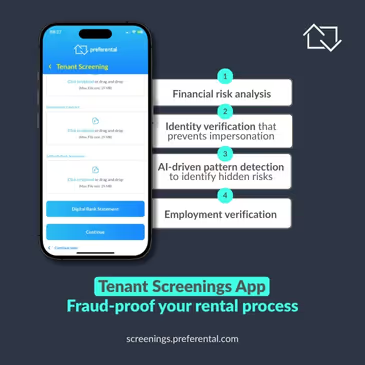Real Estate’s AML reckoning: Are we ready for the new rules?
- South Africa’s greylist exit heightens scrutiny on property transactions and the industry’s AML responsibilities.
- Criminals exploit regulatory blind spots in real estate, often aided by unregistered developers and weak compliance culture.
- RegTech adoption can strengthen frontline defences and restore trust across the property ecosystem.
A New Compliance Era
South Africa’s removal from the FATF greylist has not reduced the spotlight on financial crime, if anything, it has intensified it. Banks and financial institutions remain under strict anti-money laundering (AML) obligations, but regulators have made it clear: the property sector is no longer a spectator.
Estate agents, conveyancers, attorneys, accountants, and developers are now firmly expected to uphold the Financial Intelligence Centre Act (FICA) as frontline gatekeepers. Yet the real estate market remains one of the easiest channels for criminals to stash illicit funds, layer transactions, and hide beneficial ownership.
Nicole Johnson: A case study in exploiting the system
Nothing captures the industry’s vulnerabilities more starkly than the recent case of Nicole Johnson, an alleged criminal who managed to orchestrate a R5 million Sea Point apartment purchase from her jail cell.
She allegedly worked with property developers to route and disguise funds through her construction entities. The critical weak point?
A developer who was not registered with the Financial Intelligence Centre (FIC).
Under PCC 56, property developers are required to comply with FICA if they behave like estate agents. But the loophole is obvious: a developer can simply insist that it wasn’t acting as an estate agent and walk away from scrutiny.
The fallout has been damaging:
- A major scandal,
- A perception of professional negligence, and
- More fuel for the belief that property is the perfect hiding place for dirty money.
Estate Agents as FinCrime Gatekeepers
The property sector often flies under the AML radar for three core reasons:
1. Compliance is treated as “end-of-deal red tape”
Many players only look at FICA obligations when contracts are already drawn, instead of using them proactively to identify risk.
2. Red flags are seen but not escalated
Agents, developers, and conveyancers frequently notice discrepancies or unusual payment behaviour. But without systems, confidence, or internal support, suspicions die quietly.
3. Inadequate training and poor regulatory understanding
A large portion of the industry simply hasn’t been equipped to navigate AML requirements with the level of rigour now expected.
These weaknesses create perfect conditions for criminal exploitation and massive reputational damage for the industry.
Flying under the radar: A sector vulnerable to abuse
Real estate transactions remain a favourite target for money launderers because:
- Property values are high, making them ideal for storing and moving illicit wealth.
- Complex ownership structures can hide beneficial owners.
- Developers, agents, and intermediaries often lack centralised AML systems.
- Some participants, including unregistered developers - operate with minimal compliance oversight.
The result is an ecosystem full of gaps that criminals can slip through with ease.
Reworking the property market with RegTech
The industry must now move from a compliance-tick-box mindset to a trust-building and risk-prevention culture. Modern regulatory technology (RegTech) is the fastest route to that shift.
RegTech helps institutions
- Identify beneficial owners and layered structures
- Detect adverse media and watchlist flags
- Track suspicious fund flows
- Automate KYC and FICA workflows
- Build clear audit trails for regulators
- Escalate high-risk clients or transactions to the FIC
This modernisation is not optional, regulators expect it.
The way forward
South Africa’s property sector has a chance to reset its AML reputation. That means:
- Zero tolerance for non-registered developers or intermediaries
- Proactive identification of anomalies, not passive paperwork
- Industry-wide training and a shared culture of compliance
- Adoption of RegTech to close loopholes and strengthen frontline checks
- Open collaboration between estate agents, developers, conveyancers, attorneys, FIs, and the FIC
If real estate wants to shed its “soft underbelly” status in financial crime, the sector must lead the conversation, not follow it.
This is the moment to professionalise, modernise, and prove that property can be part of the AML solution, not the problem.
About the author
Bradley Elliott is the CEO of Anti-Money Laundering (AML) platform RelyComply













.avif)


.avif)

.avif)




.svg)





























.avif)
